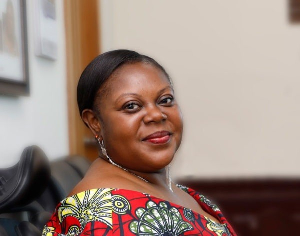Education consultant and lecturer Dr. Jemima Nunoo has admitted that, despite her years of academic training and experience in child development, raising her own daughter has turned many of her theories upside down.
Speaking at A Convergence of Mothers—a parenting and mentorship forum held in Accra and organized by media personality MzGee—Dr. Nunoo revealed how becoming a mother forced her to confront the gap between classroom theory and real-life parenting.
“I have a two-year-old running around my house now—and everything I knew about child education went out the window,” she confessed. “I planned, I prayed, I read books. I took all the vitamins and prepared like I was writing an exam. But she came and defied everything. And she still does.”
Her remarks struck a chord with many parents in attendance, especially those struggling to balance professional knowledge with the practical realities of everyday life.
Dr. Nunoo used her experience to emphasize that today’s approach to education must go beyond academics.
She described modern learning as holistic, highlighting the influence of home life, emotional well-being, social development, and even a parent’s personal habits on a child’s growth.
“If I love to dance at home and play music, my child picks that up. She dances too. That’s a learning environment,” she explained.
“It’s not just about books and grades anymore. It’s emotional, it’s social—it’s everything.”
She shared how including her daughter in everyday routines and even professional spaces has helped shape her development. From nursery exposure to quietly sitting in lecture halls, Dr. Nunoo believes children benefit greatly from simply being present.
“At one point, I used to attend board meetings with her. When it was time to breastfeed, I’d go downstairs, feed her, and come back up. That was my world, and I brought her into it. And it worked.”
She urged parents not to feel guilty or judged for involving their children in their routines.
“If it’s safe and feasible, let them tag along. They’re watching, learning, mimicking.”
Dr. Nunoo also addressed the growing role of technology in child development, calling for intentional regulation of screen time.
“We can’t eliminate it entirely, but we can control it. Let’s substitute screen time with simple, engaging activities like coloured rice, pegs in bowls, supermarket visits—anything.”
She concluded with a call to restore community-based child interaction, noting how supervised outdoor play and casual neighbourhood friendships can do wonders for a child’s social growth.
“My daughter now knows kids in our area just from little visits to the shop. She jumps in the rain, sings out loud. That joy, that learning, is something no screen can teach.”
Dr. Nunoo’s reflections formed part of a broader conversation under the theme “Yesterday’s Daughters, Today’s Mothers”, which brought together women from diverse backgrounds to reflect on the challenges and joys of raising children in modern Ghana.
AM/KA



